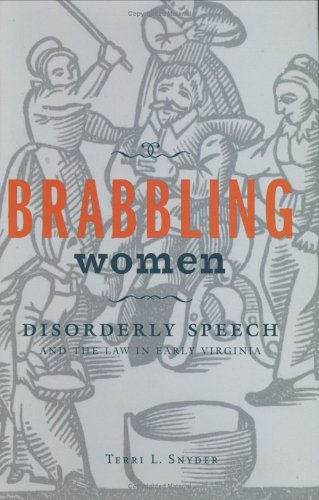

Most ebook files are in PDF format, so you can easily read them using various software such as Foxit Reader or directly on the Google Chrome browser.
Some ebook files are released by publishers in other formats such as .awz, .mobi, .epub, .fb2, etc. You may need to install specific software to read these formats on mobile/PC, such as Calibre.
Please read the tutorial at this link. https://ebooknice.com/page/post?id=faq
We offer FREE conversion to the popular formats you request; however, this may take some time. Therefore, right after payment, please email us, and we will try to provide the service as quickly as possible.
For some exceptional file formats or broken links (if any), please refrain from opening any disputes. Instead, email us first, and we will try to assist within a maximum of 6 hours.
EbookNice Team

Status:
Available5.0
24 reviewsBrabbling Women takes its title from a 1662 law enacted by Virginia's burgesses, which was intended to offer relief to the "poore husbands" forced into defamation suits because their "brabling" wives had slandered or scandalized their neighbors. To quell such episodes of female misrule, lawmakers decreed that husbands could choose either to pay damages or to have their wives publicly ducked.
But there was more at stake here. By examining women's use of language, Terri L. Snyder demonstrates how women resisted and challenged oppressive political, legal, and cultural practices in colonial Virginia. Contending that women's voices are heard most clearly during episodes of crisis, Snyder focuses on disorderly speech to illustrate women's complex relationships to law and authority in the seventeenth century.
Ordinary women, Snyder finds, employed a variety of strategies to prevail in domestic crises over sexual coercion and adultery, conflicts over women's status as servants or slaves, and threats to women's authority as independent household governors. Some women entered the political forum, openly participating as rebels or loyalists; others sought legal redress for their complaints. Wives protested the confines of marriage; unfree women spoke against masters and servitude. By the force of their words, all strove to thwart political leaders and local officials, as well as the power of husbands, masters, and neighbors. The tactics colonial women used, and the successes they met, reflect the struggles for empowerment taking place in defiance of the inequalities of the colonial period.